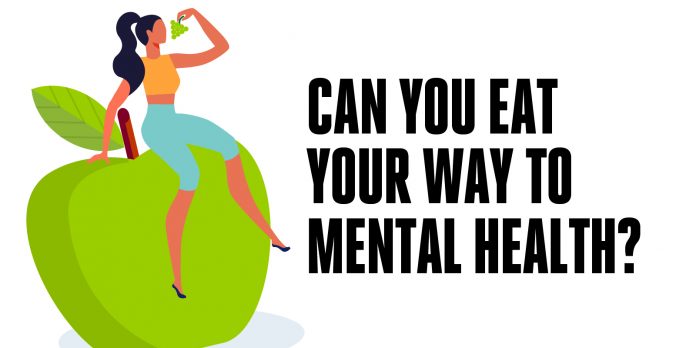As the old saying goes, an apple a day keeps the doctor away. According to recent research being done in Australia and the U.K., it may also keep the psychiatrist away!
By: Molly Halbrooks | LMFT at Grow Counseling
Increasing fruit and vegetable consumption can have positive effects on mental health, similar to the well-documented positive effects of increased physical exercise. Recent studies show that even when controlling for other factors like income, health, and consumption of other food, people who increased their consumption of fruits and vegetables by just one serving a day reported significantly higher life satisfaction and mental well-being.
Some of this effect may be due to the improvement in gut health that comes with an increase in whole foods and fiber. The presence of certain neurotransmitters is necessary in your brain for you to feel happy and calm, and the building blocks your body needs to produce those neurotransmitters are made in your gut. When you increase fruits, vegetables, whole grains, and legumes, your gut microbiome flourishes and is able to produce the appropriate balance of those neurotransmitter building blocks.
There are a few easy ways to increase your fruit and vegetable consumption without even really noticing.
Focus on adding foods, not on denying yourself.
Rather than focusing on what you shouldn’t have or restricting “bad” foods, simply think about adding a fruit or vegetable to one of your existing meals or snacks. This way, you get the benefit and nutritional value without feeling deprived.
Start with things you already like, then branch out from there.
If you prefer fruit, don’t try to jump straight into raw kale. Stick with what you already like to begin with, then slowly start to try new things once the habit is more established.
“Hide” your veggies.
It’s really easy to add an extra serving of vegetables into things like smoothies, pasta sauce, or soup. You can also consider doubling the vegetables a recipe calls for – you likely won’t notice that it contains more vegetables than usual, and you’ll be reaping the benefits without having to try!
There isn’t enough evidence to establish that eating fruits and vegetables can prevent mental illness, and a change in diet should never replace necessary treatment. At the end of the day, if adding one serving of a food group could have such a positive impact, why not give it a shot?

Molly Halbrooks is a licensed Marriage and Family Therapist who works in the Suwanee area at Grow Counseling. She received her Masters of Family Therapy from Mercer University School of Medicine. She works with individuals and families dealing with a variety of concerns. She specializes in working with anxiety, life transitions like divorce or job change, grief and loss, trauma, and ADHD.













